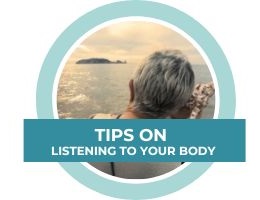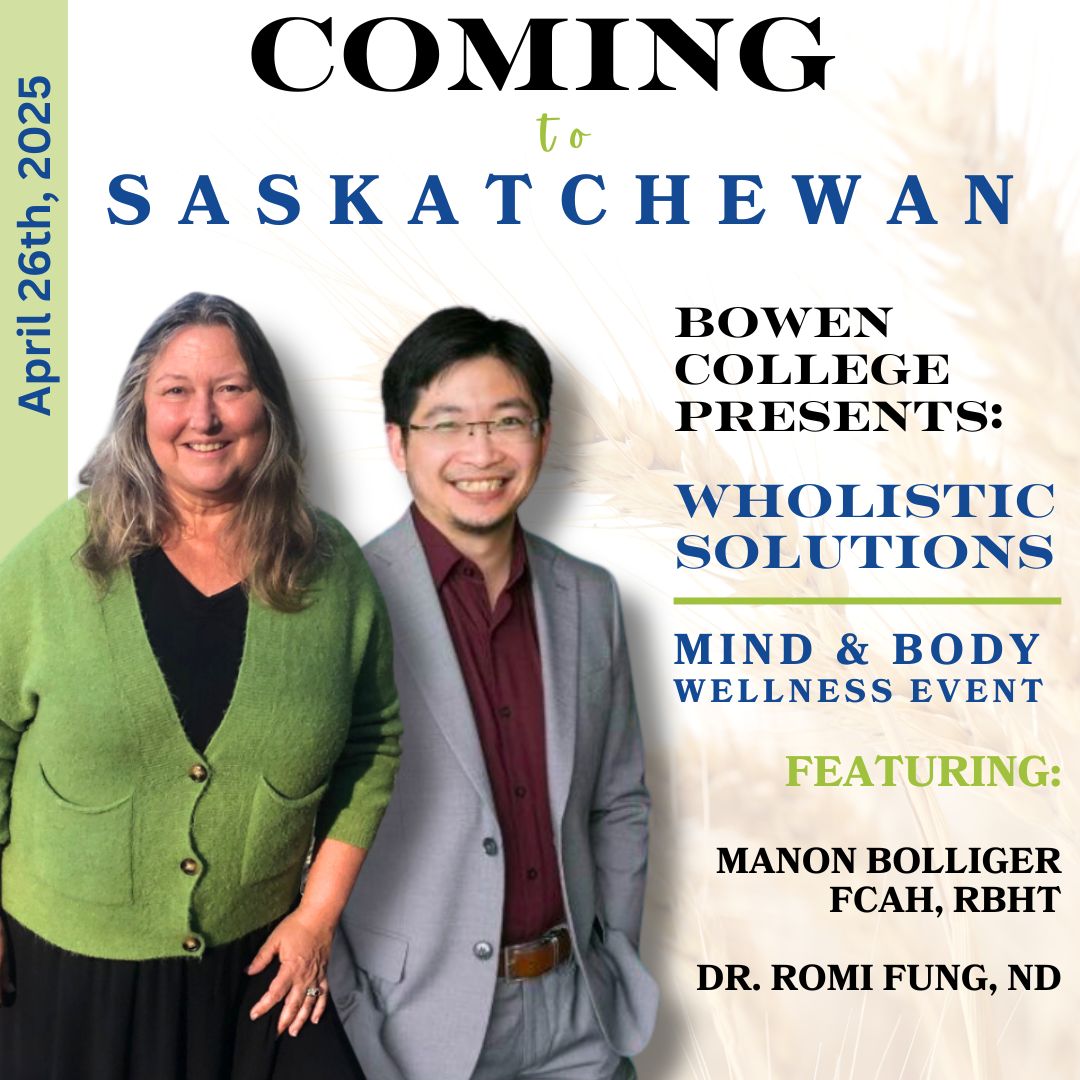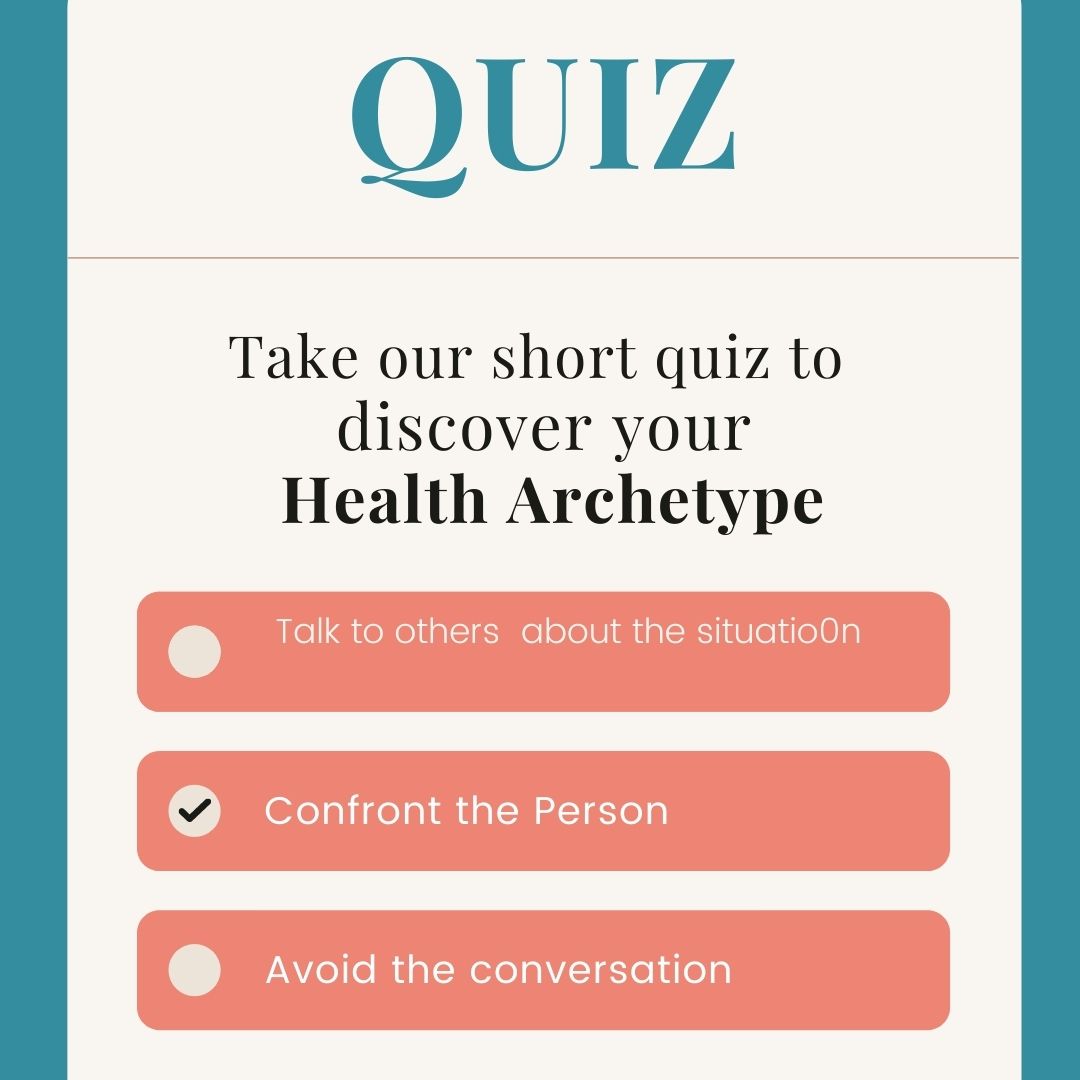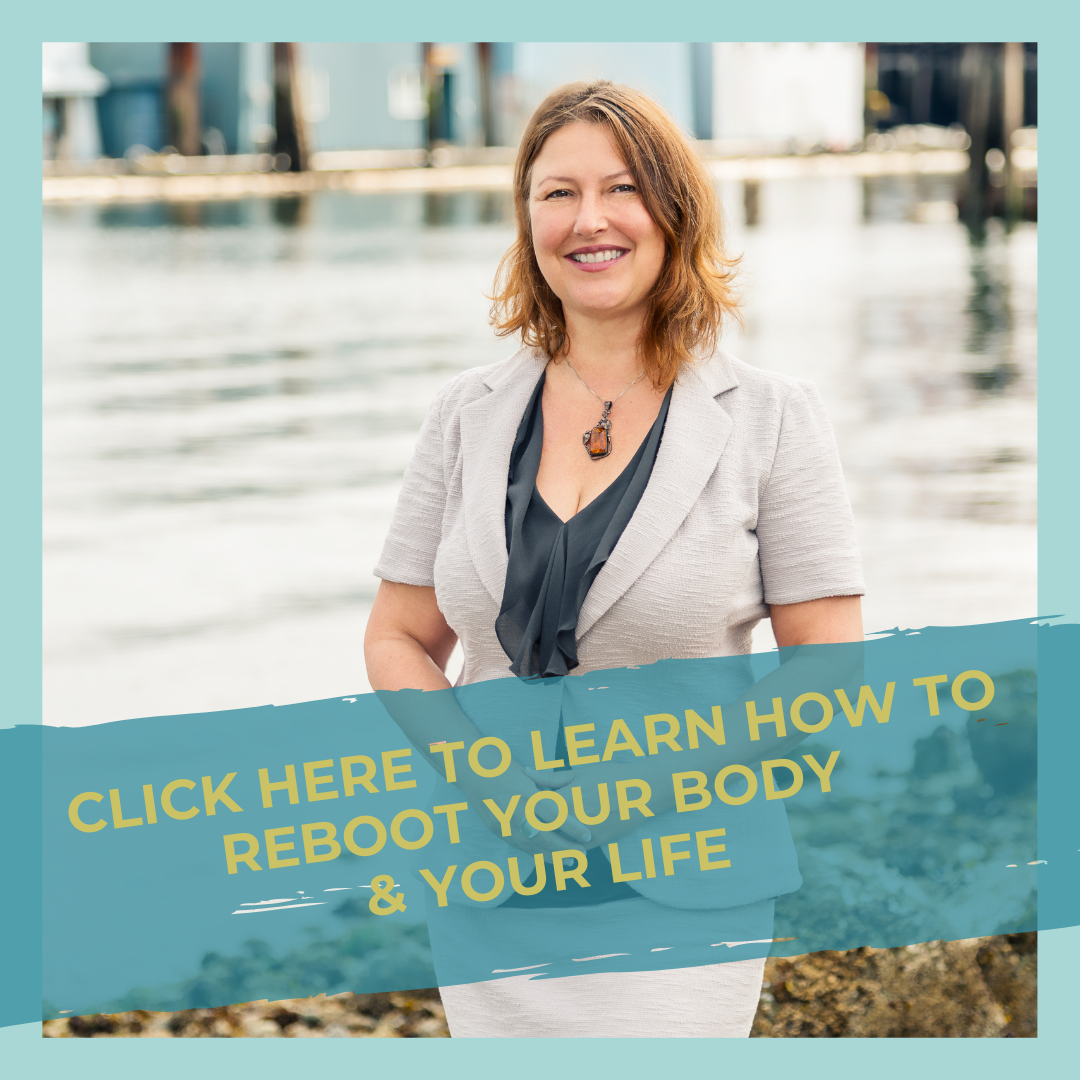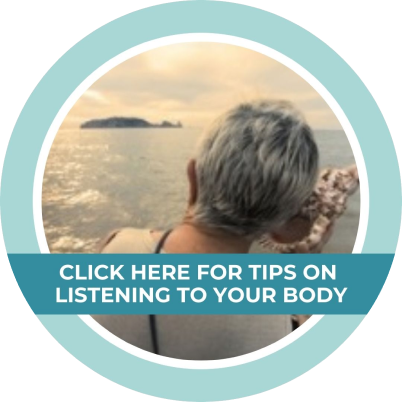
The #1 show for medical practitioners & holistic healers to have heart to heart conversations about their day to day lives.

Manon Bolliger (Deregistered with 30 years of experience in health)
iTunes | Google Play | Spotify | Libsyn | iHeartRadio | Gaana | The Healers Cafe | Radio.com | and many more
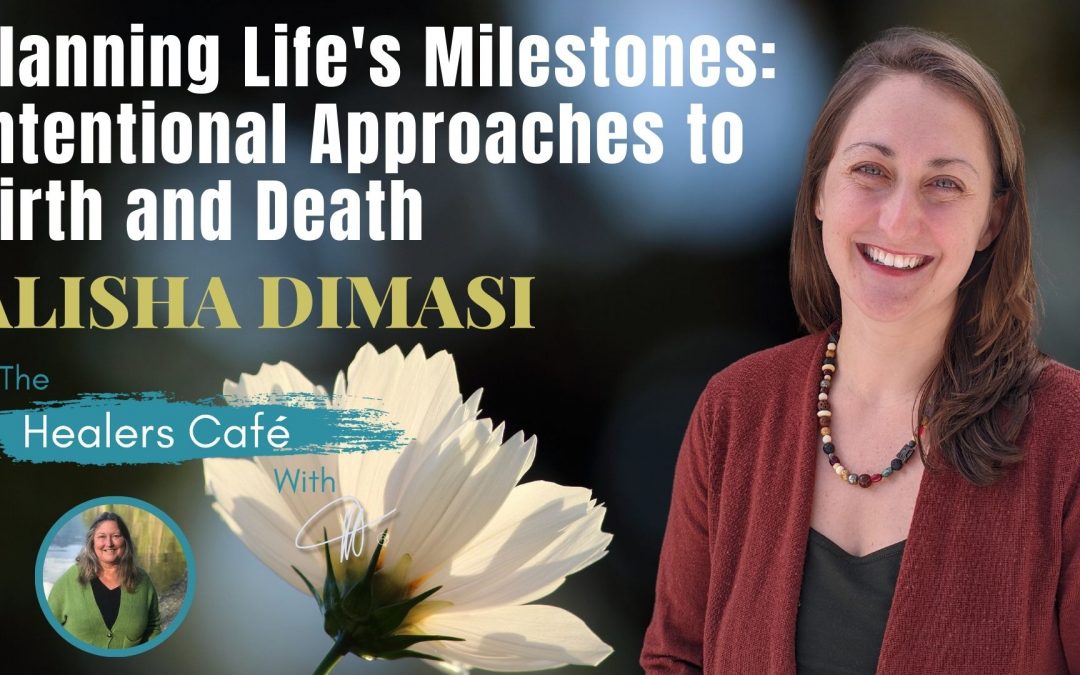
Alisha DiMasi
Planning Life’s Milestones: Intentional Approaches to Birth and Death with Alisha DiMasi on the Healers Cafe & host Manon Bolliger
In this episode of The Healers Café, Manon Bolliger, FCAH, RBHT, speaks with Alisha DiMasi about the connections between birth and death. They discuss the importance of community support, planning, and intentionality in both experiences. Alisha shares insights from her work with Threshold Care, focusing on green burial education, home funerals, and the emotional aspects of saying goodbye to loved ones.
Highlights from today’s episode include:
Alisha DiMasi 17:54
We could be keeping our loved ones at home after they die, and we could be the ones the family washing the body, you know, which is more of a ritualistic washing, not like a scrub, a dub, dub washing, um, and having a multi day vigil.
Alisha DiMasi These are hard conversations, and it’s hard to say goodbye, but don’t underestimate what a gift it is to plan ahead and give some information, because the people that are left behind want to do what you wanted to do,
– – – – –
Alisha DiMasi But talking about death is very life affirming, okay? Because if we’re talking about this final, this finality, what could reflect back to us more the amazing and incredible opportunity we have here today to be alive, right?
ABOUT ALICIA DIMASI
Alisha DiMasi, Well Within’s founder, comes to you as an occupational therapist, mother, and deeply curious human. Over her studies and career, she has worked with infants through elders in public and private schools, hospitals, and assisted livings.
During Alisha’s many years in the local public and private residential schools she served students with a wide range of physical and cognitive & dis-bilities. Those years highlighted for her the importance of parent and caregiver; engagement and the power held within the home setting to support a child’s growth. Through her own mothering she witnessed the transformative capacity of coregulation.
Alisha’s involvement with Threshold Care began in 2016 and gave home to a longtime interest in burials that were environmentally sound and financially accessible. Her involvement with Threshold Care nurtured an interest in holistic end of life care. It was an education to compare Threshold’s work to the end of life practices she saw in the assisted livings. In 2021, she became a board member.
Through her two pregnancies and home births, Alisha became a student of Trust. It was also then she began looking in wonder at the multitude of parallels between birth and death. She continues to study the power of these portals and the rites of passage marking the space between them. Alisha’s experience as a parent has been expansive, beautiful, and grueling, often within moments of one another!
Alisha holds exploration in high regard and has many interests. She loves building community connections, loves to sing, and is learning to play her first instrument- a banjolele. Alisha has lived her personal study in: physiological birthing, respectful parenting, natural motor development, the natural care of our bodies; including in acute and chronic illness; permaculture design, living with loss and grief & and the sensory integration changes that can accompany trauma, and most recently but certainly not least—Human Design. Alisha lives in Lyndeborough with her two children and husband on their small homestead.
Core purpose/passion: I am a multi-passionate person and what has risen above the rest in recent years is my desire to support individuals and family systems in finding, feeling, and claiming their power during everyday interactions with themselves, their children/family, and the outside world.
ABOUT MANON BOLLIGER, FCAH, RBHT
As a recently De-Registered board-certified naturopathic physician & in practice since 1992, I’ve seen an average of 150 patients per week and have helped people ranging from rural farmers in Nova Scotia to stressed out CEOs in Toronto to tri-athletes here in Vancouver.
My resolve to educate, empower and engage people to take charge of their own health is evident in my best-selling books: ‘What Patients Don’t Say if Doctors Don’t Ask: The Mindful Patient-Doctor Relationship’ and ‘A Healer in Every Household: Simple Solutions for Stress’. I also teach BowenFirst™ Therapy through Bowen College and hold transformational workshops to achieve these goals.
So, when I share with you that LISTENING to Your body is a game changer in the healing process, I am speaking from expertise and direct experience”.
Mission: A Healer in Every Household!
For more great information to go to her weekly blog: http://bowencollege.com/blog.
For tips on health & healing go to: https://www.drmanonbolliger.com/tips
SOCIAL MEDIA:
– Linktr.ee | Rumble | Gettr | Facebook | Instagram | LinkedIn | YouTube | Twitter |
About The Healers Café:
Manon’s show is the #1 show for medical practitioners and holistic healers to have heart to heart conversations about their day to day lives.
Subscribe and review on your favourite platform:
iTunes | Google Play | Spotify | Libsyn | iHeartRadio | Gaana | The Healers Cafe | Radio.com | Medioq | Audacy |
Follow The Healers Café on FB: https://www.facebook.com/thehealerscafe
Remember to subscribe if you like our videos. Click the bell if you want to be one of the first people notified of a new release.
* De-Registered, revoked & retired naturopathic physician after 30 years of practice in healthcare. Now resourceful & resolved to share with you all the tools to take care of your health & vitality!
TRANSCRIPT
Introduction 00:00
Welcome to the Healers Café. The number one show for medical practitioners and holistic healers, to have heart to heart conversations about their day to day lives, while sharing their expertise for improving your health and wellness.
Manon Bolliger 00:22
So welcome to the Healers Cafe. Today I have with me Alicia DiMasi. She’s Well Within founder, and she comes to us as an occupational therapist, a mother and a deeply curious human. Over her studies and career, she has worked with infants through elders in public and private school, hospitals and assisted living. And there’s a focus that I would love to just bring up, and it’s basically your wonder at the multitude of parallels between birth and death and the rites of passage. So welcome to to our talk together, and let’s start with that.
Alisha DiMasi 01:09
Sure. Yeah, this is really exciting that this is where you wanted to start. And we were saying before we hit record, how timely it is in the collective it’s also really timely in my personal life as well. So it’s really something that’s so fascinating to me so but I’ll back up. When I was practicing full time as an OT before I stepped away to start my family, I was working with children and families in public and private schools, and all the while, I continued working with adults, at least on a part time basis, because I didn’t want to lose those skills, basically. And that led me to work in assisted livings, where there were memory care units and people who just needed a little bit more care. So in that setting, I was able to see, of course, people in assisted livings are older, many of whom are at the end of their life, and that is their home, and that is where, in many cases, they will make their final transition and leave their bodies and die. And so I was able to really see a little bit of what it looked like in in a setting that was more maybe mainstream, right? And then I had an opportunity to join forces with a local nonprofit. During that time, right, I joined forces with a local nonprofit, Professional Care here in New Hampshire, a collective of women who were just so diverse in their experiences and passionate about bringing back into our more modern conversations some of the old ways that we …..
Read more...
did death and dying. So there were three sort of tenants there, green burial education, which is what initially brought me to them, because of my long standing somewhat unexplained interest in burials that were more natural, even before I knew it was a term, you know, and home funerals and death, midwifery. And so it was for several years that I was volunteering with threshold care and just soaking up all of this amazing knowledge from women, mostly older. I was the youngest of the group at the time, about another way to think about death and another way to think about what it is to transition. And it was just this real blossoming, really incredible. And several years into that, then it was time for me to have to start my own family, and as I was preparing for the birth of my first and then two years later, my second son, just the incredible unfolding that happened is me as a woman, me as a mother, me and the role of our family. And, you know, planning to birth my children, in my power, in my home, particularly after my first birth, I just learned so much, right? And so I went into my second birth really, really ready, in a way that I wasn’t before, because very often we don’t get to see women birthing in their power, right? We don’t see it in the media. We rarely have these conversations as part of our just general every day. And if you did, anyone who’s listening, you know, get…if that was part of the norm in your family and your living in a standard American household like, well, then you’re not living a standard American household, right? So anyway. And it was then that I realized, whoa, these are two portals that are just totally two sides of the same coin, right? The essential, just some things right off the top of my head, this essential element of surrendering to the experience that you’re having, it’s…you really would be…it’s really hard to do either birthing or dying without surrendering to the experience at hand, right, and the community that comes around you, and how we can lean on that community to support us through both of those experiences. But ultimately, they really are experiences of going in and then coming out anew, just in a blossoming, um, yeah, and so there’s, there’s just a lot there that I don’t think because people who are in their birthing season of life and people who are in their dying season of life, we just don’t really talk about it a lot. Because if you’re really in your birthing season of life, you’re not thinking so much in that way, about leaving your body. You’re starting your life. You’re starting your family, you know. But when I was sort of straddling these two, these two worlds, because I have a lot of interests and passions, it just really came to the forefront, that there’s so much, so many similarities there, as this journey. You know that we get to revisit this opportunity. You know, we get to revisit these rights of passage. We get to try again what it is to have a transformational experience, and in both cases, birthing and dying. I mean, you, in a lot of ways, will birth the way you live. You will die the way you live, in some ways, right? What is your relationship to pain. What is your relationship to? You know, we talked about surrender, but what is your relationship to what do you reach for when things get hard? What are the tools you use when things get hard? And so we really have an opportunity to sort of put on display in our own psyche some of the the tools that we use and that we live, that we live and die by, right?
Manon Bolliger 07:55
Yeah, no, I see the parallels very strongly. You know myself from experience as well, witnessing, you know, both sides. And I was curious when you say birthing, you know, with sovereignty. Can you expand on that?
Alisha DiMasi 08:13
Sure. I mean when you say birthing with sovereignty, I think of a woman who knows her truth, I think of a woman who knows her power, who knows, who sits in deep trust and is ready to meet, to meet it, you know, to bring her trust to meet whatever it is that the that maybe she’s facing with. Because it’s different, right? It’s different for every person. What it is that we’re like coming up against, yeah.
Manon Bolliger 08:52
Yeah. And similarly, I would imagine too, that if you have birthed in sovereignty, death is easier because you can remember the surrender essentially.
Alisha DiMasi 09:07
Yeah, sure. I think that that’s so well within the realm of possibility. Because I think that our relationship to pain is a significant one, and the tools that we reach for and the paths that we use for our decision making, right? Are you looking, are you checking in, within the information you get from without, or is it that you’re completely turning over your power and your decision making and your yeah and your autonomy and your sovereignty. It was, it’s probably a fair line to draw, and I know that, you know, curveballs are thrown at people and limits and a lot of it’s in the mystery, right? That’s both of them, ultimately, so much of it is, is just totally in the mystery, and it’s fascinating.
Manon Bolliger 10:02
But there are things you can do, you know, to prepare, to prepare for a birth, and it’s sort of setting, the surrounding and the same for a death. You know, what do you want? What do you want around you? You know, do you want flowers? Do you want friends? Do you want, you know music. What is it that you know that honors your process and the same with birthing, you’re also choosing. Things happen, but you still are setting up for, you know, life’s one of life’s biggest events. So what actually got your interest way back into all of this?
Alisha DiMasi 10:45
The birthing or the dying?
Manon Bolliger 10:48
Both.
Alisha DiMasi 10:49
Well, you know, I want to just circle back to something that you said when, as a green burial educator, I would start every talk by mentioning what you just said. And it’s worth coming back to, and it’s worth repeating, because these experiences that maybe we’re hoping to have and we’re dreaming about and we feel are right for us, especially the experiences we want that are a little bit different than what would just happen if we just turned ourselves over to some of these bigger systems of power, those take planning, and that’s what you…that’s what you hit on. We spend months, you know, broadly, collectively, we spend months planning for a wedding, right? And the deed, we planned every single detail of our weddings, but some of these, maybe equally or more life change experiences, you know, we shouldn’t leave them up to chance, which maybe was your point, right? And it isn’t that we can control the experience by planning, no, but we can give it some consideration. We can give it some thought. And what I would say in the beginning of our green burial presentations is, I use, I use birth as an example, because something like birth and food and death now we have these additional words in front of them, home birth or free birth, organic food or natural food, you know, natural death or home funerals like they were just go back several 100 years. That’s just what they were. You just birth, you just ate, you just died, right? And so now to do it a little differently, take some planning and some intention and Threshold Care authored a workbook that really goes into just some of the things that you were saying. We call it a planning guide, and it’s available on the website. Who do you want there and there? You know it isn’t that you have to fill out every single thing. I really like it as a conversation starter, because families, the people around you need to know if you’re planning to birth at home, like the time to mention that is not when your water is released, right? You need to have talked about that before. And if you don’t want to die in the hospital, you do not have to you can stay in the comfort of your home. It is worth a conversation, multiple conversations, potentially, to put some pieces in place. So you can do that, so you can have, or at least the closest, we think, to the experience that you want, right? You wouldn’t just grab a hammer and nails and start building a house. You would start planning it, because it takes some intention and time, and now I’ve forgotten what you want to know. Oh, how I got started, the death piece feels, um, that feels like something that just came with me. I was a middle schooler thinking how strange it is that people spend…it was really around, like the materialism, the amount of money that people spend watching families have hardships for when unexpected deaths happen, with the funerals and the ornate caskets and all of the expense of it. And I just remember thinking and talking to a friend of mine, this just doesn’t seem…there’s got to be another way. This just doesn’t seem like it, you know. And so it was really just Kismet to run into at a small event I wasn’t even planning on attending, this group of women who had just formed Threshold Care the year that I did. And I was elated. I was like, Oh, this has a name, great. Because somehow I’d made it through all the years of university not even hearing, you know, I was very much in my living years, like not hearing green burials. It wasn’t…there weren’t articles about mushroom suits that you could be buried in in the newspapers. It’s, it’s coming up. It’s bubbling. It’s bubbling up a little bit more to the consciousness now than it was like 20 years ago, which is great, which is great, and birth…
Manon Bolliger 15:07
Yeah. Can you share, though, a little bit more about that company that you’re, you’re mentioning?
Alisha DiMasi 15:13
Threshold Care.
Manon Bolliger 15:15
Threshold care. Sorry, I heard green in there somehow.
Alisha DiMasi 15:18
No for sure, in New Hampshire, and it’s changed face a bit as some of those women’s lives have moved in different directions. But a lot of really loving energy went into making that planning guide workbook, and that still is available. And it’s thresholdcare.org. It is for anyone who wants to just kind of feel out the kind of collective that would be possible. It was a collective of women who wanted to offer services to the community, to our local community, hands on services and educational services. And there is still a bit of a threat of it there. And yeah, it’s modeled after what would have been, there always would have been a group of women who would tend to the families of a loved you know, who had a dying loved one, and help the families. Help the families prepare for what it is to have a funeral at home. You know there, there were always primarily women in that in that role in the communities.
Manon Bolliger 16:34
And so what, you know, one or two concepts or that struck you that we’re just not doing as much that we really should be looking at?
Commercial Break 16:44
What would your life be like if you were pain free, if you were one of the millions who suffer from chronic pain, the thought of just one day without it may seem impossible. This is often because conventional medicine tends to fall short in the treatment of pain, opting to prescribe pills or recommend surgery rather than getting to the root cause of the problem. But if you are suffering with emotional or physical pain, there is hope. Join the founder and CEO of Bowen College, Manon Bolliger, live online for your body mind reboot, learn how to listen to your symptoms and get to the root cause of your pain, plus be trained in basic bone therapy moves so that you can reboot your body for optimal health. You don’t have to live in pain. You can heal, stop the pain pill cycle by visiting www.yourbodymindreboot.com to learn more and to register.
Alisha DiMasi 17:54
We could be keeping our loved ones at home after they die, and we could be the ones the family washing the body, you know, which is more of a ritualistic washing, not like a scrub, a dub, dub washing, um, and having a multi day vigil. And some, some religions still do, and it is extreme, in a sense, only because we’re quite far removed from it. But the beauty is the other side of it is that it really supports the integration and the process of saying goodbye to someone, because at the end, doesn’t have to be a three day vigil. It could be a one day vigil. You’re ready. You felt. You can feel that they’re moving away. You can feel that they’re not there and they and then you’re more ready to say goodbye, and that is a gift, and not something that always happens. Sometimes, maybe a loved one would pass and in a more maybe traditional setting, like in a hospital, and the body might get whisked away. And this sort of leaves those who are left behind in a bit of a state, because to never see, you know, to never see this loved one, and not, you know, not in the casket with the makeup. Oh, they look so good. Well, they’re, they’re not supposed to look so good. They’re, they’re dead, um, you know, and so it’s that’s extreme in some circles, right? It might sound extreme, but I really think we need to be talking about the benefits of that. And some of the people that are at the forefront of championing for this, even if your loved ones died in a hospital, some of the people that are at the forefront of championing this message are parents who lost a young child, and they are not ready just to let that body get whisked away. I’ll tear up talking about it, because, especially as a parent, right? They’re like, No, I want to hold my baby. And there are families who have fought to bring their babies home, you know, and children home so they can hold them one more time and say goodbye. And so what we what we gave up when we turned over some of these, some of these rituals to the funeral home, right? They want you to feel very comfortable there, you have your couches and they Oh, you know, don’t worry. We’ll take care of everything. A business came in, a big business, right? Anybody who’s paid those Funeral Home bills knows the big business came in to save us from this and with that…and it isn’t that there isn’t a will for it. Okay, like I have. I know this to be true also, but with that, we gave up something there, and I think that we don’t quite even really know how much it was that we gave up. So that’s one thing, just consider it. And then the other thing is, a lot of people want to stay at home to die, and oftentimes they do not. They end up in the hospital system. They end up dying in the hospital system. So this comes back to the planning piece. Talk to your loved ones who’s around, you know, make sure that you have some of your more, like legal sort of pieces in place. Get your DNR in place, talk, put it on the fridge. Sometimes you have to put it on your forehead, because there isn’t some, if there isn’t someone there, you know, like a first responder, they’re there to save you, right? And so you can’t, we said, you can’t plan for everything. You can’t know how something is going to turn out, especially something unexpected, like an accident or, you know, but give it some thought, and it’s a lot, it’s a lot, I know, just give it some thought, because you have an opportunity to say, to give some guidance. And you know what? It’s a gift. It is a gift to your…if any of your listeners have been on the other end of maybe a sudden death or an unexpected death, or even an expected death. In the case of my family, we’re looking around with my husband’s family. We’re looking around, going, we don’t even know who should officiate this service. She was Catholic, and then she converted to Judaism. Would she want a Rabbi? How did we not have that conversation? This wasn’t a surprise, you know. So don’t. These are hard conversations, and it’s hard to say goodbye, but don’t underestimate what a gift it is to plan ahead and give some information, because the people that are left behind want to do what you wanted to do, and it makes it easier for them, if they’re like, gosh, I know. I know exactly where the passwords are to get into the computer. I know exactly, you know, what kind of music mom wanted, like these little things we have time now.
Manon Bolliger 23:08
Exactly. We had. We had, actually my, my mom passed away two years ago, and you know, she prepared everything, how she wanted it, and she was clear she did not want to die in the hospital, which then made and she had a broken back three times, and this third time wasn’t going to heal. She was just too frail and too scared that she would fall, be on her own and then end up in the hospital to die, which was her fear. So she actually chose MAID, which is in Canada, very popular and very misused, I would say, you know, it’s given to people that really don’t…that what they need is help, and they need money, funds so they can afford their life, you know. So I’m not, I’m not speaking for MAIDs, but I think in the case of my mom, it was…it allowed her to have her wish she wanted to be, you know, in her home, she wanted her daughters there. She, you know, it was quite beautiful. And she had it her way, and we were able to negotiate having her around for a little while. You know, it’s three hours, but it was three hours where you could feel the end. And I think, yeah, it’s a good experience if you know…if you know that the person’s aligned to it, if there’s a way you know to actually organize it. And of course, you know, with all the sudden deaths and everything we’re experiencing now, we can’t always do that, you know. So I’d like you to also speak to that like, because there’s conversations to be had that are extremely difficult at this stage, because it’s not the elderly, it’s, like you said, it’s children, it’s, you know, just it’s right through our whole society.
Alisha DiMasi 25:18
Yeah, before I speak to that, I do want to say a third thing that I would ask for people to consider is that similar to birth, and it is not if someone has passed, and it is maybe expected, right, as in the case of your mom, you don’t have to call the ambulance and they don’t have to come with sirens. You can have a conversation with the funeral home and say, you know, so and so has passed. If maybe here in the US, if hospice is in, they can come and someone can pronounce, and then it doesn’t have to be a thing where people run in and their sirens, you know, you can, you can have that time. The funeral homes here, at least in my region, are open to hearing from families about what it is that they wish. My mother in law did she stayed at home for 12 hours because my father in law was just not ready to have her leave the house. And I think that that was just really amazing of him to have called on that, even though it’s not the norm here, because he really did feel like he wasn’t ready for her to go. And then by morning, he was and it isn’t that he washed her, anointed her with oils, and no one came to hold vigil during that time, he just wasn’t ready to say goodbye. I think that as far as the piece where there’s a lot of unexpected deaths happening. It’s never too early to have these conversations with your family members, because there isn’t any guarantees here. I know I can’t wait until I’m like 65 to have these conversations, because I just don’t know what might be coming. So, you know, depending on the age of the person when you’re listening right now, you know, maybe the way to start that conversation is just by talking about yourself and then turning it, turning it around and well, like, well, what would you want? And, you know, so many times the knee jerk reaction is like, oh, that’s morbid. Oh, that’s morbid. But talking about death is very life affirming, okay? Because if we’re talking about this final, this finality, what could reflect back to us more the amazing and incredible opportunity we have here today to be alive, right? So I think a lot of it is, um, the resistance to talking about it is just really such a, such a…it could really benefit, from a perspective shift, my opinion.
Manon Bolliger 27:56
Oh, yeah, I strongly agree. And I think having things in the open is really a way of stating your own sovereignty, checking in what other people’s beliefs or expectations, not that you should fulfill them. It’s your life. But it’s more to you know, there’s a lot of things that are really not needed that are believed because they haven’t been checked, you know. Like, you know, did she want this? Like, you know, my my mom wrote her own obituary.
Alisha DiMasi 28:32
That’s a great exercise, and I haven’t set to do it, but I’m regularly thinking about what it says, like I write lines in my head every now and then, you know what? And that’s very life affirming too, because it can really put into perspective, how do you want to be remembered, right? How what do you want? What might people say about you? Right? And so if the life that you’re living is not a life that you’d be proud to have in your obituary. That’s a real call to action, you know? That’s a real potential catalyst for change. Scary. That’s scary too, right? Like, Oh, I’m really having to face this thing that’s uncomfortable.
Manon Bolliger 29:18
But I often use it in clinic, you know, and ask people when they’re, you know, not well. What would they say? You know, just open up that portal, and it’s like, amazing how much that sometimes wakes people up into action that is positive. So we have, like, five more minutes. What would you like to for us to for you to share, really, with the people listening?
Alisha DiMasi 29:47
Yeah. Go talk about something today with someone that you love that makes you uncomfortable. Just go do it. It doesn’t have to be about death and dying. If that feels too big, just talk about something different. Tap into that vulnerability, because that edge is really where the growth is right. That edge is really where we can step into something that’s just so grand.
Manon Bolliger 30:15
Well, I think we have a we have a lot of topics that are naturally uncomfortable these days. So it shouldn’t be hard to come up with something, you know, and I do think it is the only way forward for all of us, you know, for those who had an instinct not to go with a narrative, those who chose to do it, but under duress because they see another economic way out. And, you know, and I think it’s, and then there’s those who did it, and we’re really strong about why it’s right, and we’re somewhat condemning. I think it’s, you know, it’s, it’s a chance to say, Yeah, we can make mistakes and, gee, I was fooled, and we all have been fooled at one point or another, and about everything, you know. So I think it’s a way of, really, there’s a potential for real connection, rather than real, you know, ostracization and separation, which is really what so many of us, unfortunately had to experience.
Alisha DiMasi 31:29
Yeah, and on that, I just want to say to myself and to your listeners that I see you the people who are grieving for loved ones who are scared, for loved ones who are grieving for communities. It’s really big to hold it, and we all are just doing the best we can, holding something that feels insurmountably huge, and all of the layers to that grief and the sadness and the rage, and I think as we’re getting further and further out, and, you know, having coming into more of the more of a conversation, what some of us heard in the whispers, all the while, it’s just all it’s just all the more painful. And I just want to acknowledge that for anyone that’s going through it, yeah, I see you in that, and you’re just so beautiful and keep standing in your truth and your power, because that is an example for anyone else who might be struggling and wavering.
Manon Bolliger 32:41
Very well said. I think I’m gonna, I’m gonna leave you with those words, thank you so much.
Alisha DiMasi 32:48
Thank you.
Ending
Thank you for joining us at the Healers Cafe. If you haven’t already done so, please like, comment and subscribe with notifications on as I post a new podcast every Wednesday with tons of useful information and tips for natural healing that you won’t want to miss, go to DrManonBolliger.com/tips for more tips
* De-Registered, revoked & retired naturopathic physician, after 30 years of practice in healthcare. Now resourceful & resolved to share with you all the tools to take care of your health & vitality!

Silva Santé
Indoor and Outdoor Plants that Remove Airborne Chemicals by Silva Santé on The Healers Café with Manon BolligerIn this episode of The Healers Café, Manon Bolliger (facilitator and retired naturopath with 30+ years of practice) speaks with Silva Santé, Natural...

Dr Marcus Coplin, ND
How Hydrotherapy Can Regulate and Heal the Body with Dr Marcus Coplin, ND on The Healers Café with Manon BolligerIn this episode of The Healers Café, Manon Bolliger (facilitator and retired naturopath with 30+ years of practice) speaks with Dr Marcus Coplin, ND about...

Amy Bondar
How To Build a Healthy Relationship with Food with Amy Bondar on The Healers Café with Manon BolligerIn this episode of The Healers Café, Manon Bolliger (facilitator and retired naturopath with 30+ years of practice) speaks with Amy Bondar about Nourishing Body, Mind...
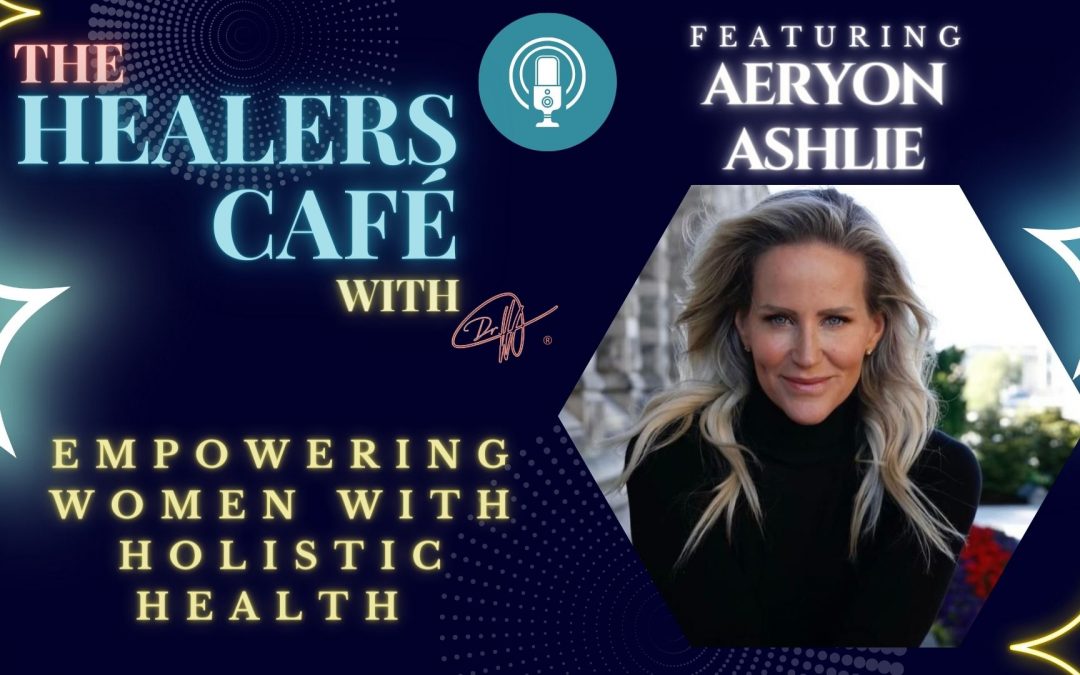
Aeryon Ashlie
Empowering Women with Holistic Health with Aeryon Ashlie on The Healers Café with Manon BolligerIn this episode of The Healers Café, Manon Bolliger (facilitator and retired naturopath with 30+ years of practice) speaks with Aeryon Ashlie our use of innovative...
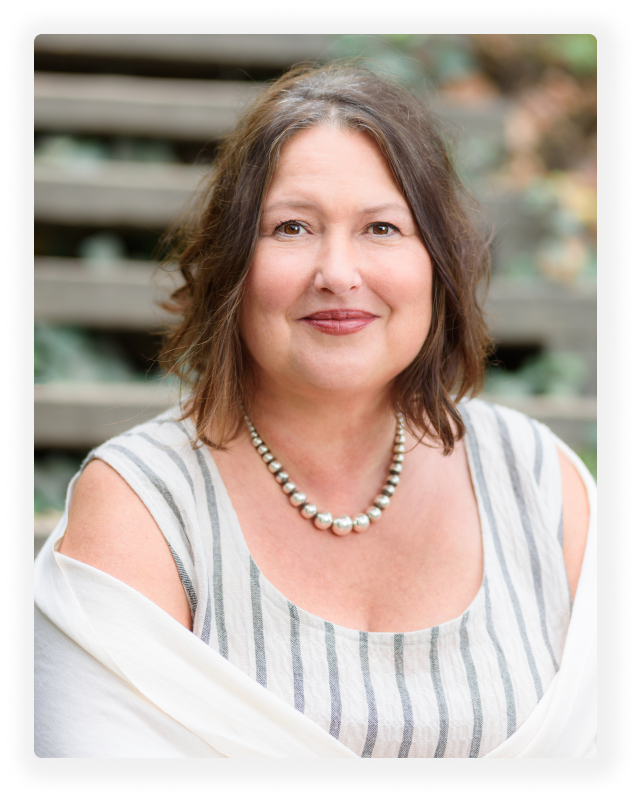
A Better Way To Connect With People
Manon is a newly retired Naturopathic Doctor, the Founder of Bowen College, an International Speaker, she did a TEDxTenayaPaseo (2021) talk “Your Body is Smarter Than You Think. Why Aren’t You Listening?” in Jan 2021, and is the author of 2 Amazon best-selling books “What Patient’s Don’t Say if Doctors Don’t Ask” & “A Healer in Every Household”.
FollOW MANON ON SOCIAL MEDIA
Manon Bolliger, FCAH, RBHT
Facilitator, Retired naturopath with 30+ years of practice, Business & Life Coach, International & TEDxTenayaPaseo (2021) Speaker, Educator, 2x Best Selling Author, Podcaster, Law Graduate and the CEO & Founder of The Bowen College Inc.
* Deregistered, revoked & retired naturopathic physician after 30 years of practice. Now resourceful & resolved to share with you all the tools to take care of your health & vitality!
![]()
